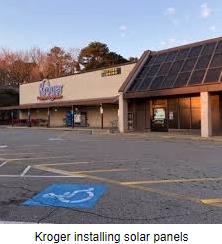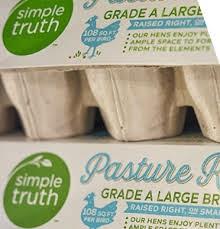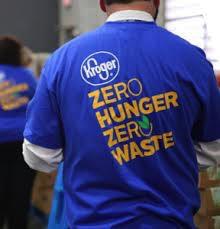 According to Keith Dailey, Group Vice-President of Corporate Affairs and Chief Sustainability Officer, Kroger is advancing goals initiated in 2006 by investment in energy efficiency. Projects include adoption of renewable energy and installation of refrigerant technology to mitigate emissions from stores and warehouses.
According to Keith Dailey, Group Vice-President of Corporate Affairs and Chief Sustainability Officer, Kroger is advancing goals initiated in 2006 by investment in energy efficiency. Projects include adoption of renewable energy and installation of refrigerant technology to mitigate emissions from stores and warehouses.
Progress to date includes:-
- Compared to 2018, the company has achieved a 9.1 percent cumulative reduction in greenhouse gas emissions.
- Installed refrigerant leak detection in 2,000 of the company’s retail stores.
- Reduced food waste in retail stores by 19 percent since 2017.
- Initiated a baseline product packaging evaluation in 2022.
- Reduced water consumption by 10 percent by 2021.
Kroger is replacing older vehicles with more fuel-efficient models, improving efficiency by 18 percent. The company is installing solar arrays at 15 locations and is evaluating anaerobic digestion technology to dispose of waste.
 In cooperation with suppliers, Kroger intends extending the program of sustainability. This will include:-
In cooperation with suppliers, Kroger intends extending the program of sustainability. This will include:-
- A 30 percent reduction in greenhouse gas emissions by 2030 over a 2018 baseline.
- Attaining zero waste.
- Introducing sustainable packaging, including a 100-percent recyclable, compostable or reusable material for Our Brands by 2030.
- Establishing reusable packaging platforms in conjunction with Loop.
- Elimination of single-use plastic grocery shopping bags by 2025.
 It is evident that Kroger will require suppliers to parallel their investment and activities in sustainability and enhanced packaging. Given that Kroger will ultimately acquire the Albertson’s banners, the combined enterprise will represent a significant volume of 5,000 stores nationwide. The implication of the move by Kroger and paralleled by Walmart, Target and other major retailers is that commensurate investment in power generation and adoption of policies and procedures that reduce greenhouse gas emission will be necessary to continue supplying to Kroger and other chains. It is questionable whether retail chains will offer a premium for meeting sustainability goals. They are however all intent on burnishing their environmental credentials, inevitably at the expense of suppliers.
It is evident that Kroger will require suppliers to parallel their investment and activities in sustainability and enhanced packaging. Given that Kroger will ultimately acquire the Albertson’s banners, the combined enterprise will represent a significant volume of 5,000 stores nationwide. The implication of the move by Kroger and paralleled by Walmart, Target and other major retailers is that commensurate investment in power generation and adoption of policies and procedures that reduce greenhouse gas emission will be necessary to continue supplying to Kroger and other chains. It is questionable whether retail chains will offer a premium for meeting sustainability goals. They are however all intent on burnishing their environmental credentials, inevitably at the expense of suppliers.